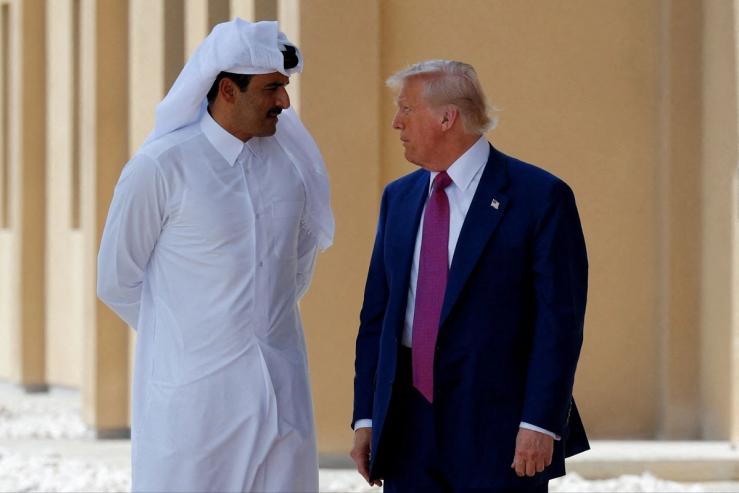Faisal’s view
The Israeli strike on a Doha residential building housing Hamas leaders left a scorch mark on the credibility of US security agreements in the Gulf. Qatar hosted Hamas at Washington’s request, as it did with the Taliban, and both were in Doha not to plot war, but to negotiate peace. Bombing Qatar raises questions across the region’s capitals about the role of allies, the limits of American oversight, and the Israeli motivations behind prolonging conflict.
Qatar’s hosting of Hamas has always been a point of contention, not just for Israel, but for several Arab neighbors. Doha accepted the risk to enlarge its role on the global scale, gain access, influence, and to serve a broader diplomatic purpose by facilitating talks. Qatar is also home to Al Udeid Air Base, the biggest US military installation in the region, the forward headquarters for US Central Command (CENTCOM), designed precisely to detect and deter aerial threats. To suggest that Washington was unaware of the Israeli strike — or unable to prevent it — is not just implausible. It is laughable.
This summer has been bruising for Qatar. In June, it was struck by Iran, taking the hit without responding as the last salvo in the Israel-Iran war. To suffer another attack, this time from a US ally, raises concerns of whether US military presence in the region is actually a deterrent. CENTCOM itself assumed responsibility for Israel in 2021 to better coordinate between partners. If Israel can bomb a US ally without consequence, then what exactly is CENTCOM coordinating?
Beyond the physical damage — and death of a Qatari police officer along with some Hamas officials — the diplomatic fallout has been swift. With one side of the negotiation table now targeted and eliminated, the prospect of a ceasefire, and the release of the hostages, has become even more remote. Hamas will likely harden its position. Israeli Prime Minister Benjamin Netanyahu, however, stands to benefit from the escalation.
The longer the war drags on, the more political capital he accumulates. From the Gulf’s perspective, Netanyahu has once again acted against US interests, undermining President Donald Trump’s efforts to broker peace. Despite receiving nearly $4 billion in US aid annually, Israel has in recent years delivered mostly headaches to Washington. Gulf countries like Qatar, the UAE, and especially Saudi Arabia, are deploying trillions in American industries, supporting diplomatic efforts, and playing a constructive role in resolving conflicts from Sudan to Syria, Lebanon to Ukraine.
The biggest question after the Sept. 9 strike in Gulf capitals is not about Israel: It’s about America. Qatar, and the region, will maintain their alliance with the US. But can the US be depended as an ally? If American military presence no longer guarantees protection, and if its diplomatic assurances can be so easily undermined, then what is the value of the military presence?
The strike in Doha was more than a military action. It was a message. Unless Washington responds with clarity and conviction, the message received across the region will be one of abandonment. Trump said he wasn’t “thrilled” with what had happened, but in politics, actions speak louder than words. And in this case, not taking decisive action to curb Israel when it attacks a fellow ally would be interpreted negatively.
The time for ambiguity is over. Allies deserve both actions and answers. And the Gulf deserves respect.
Faisal J. Abbas is an award-winning journalist and Editor-in-Chief of Arab News.
Notable
- Israel’s strike in Doha was based on intelligence that senior Hamas leaders were gathering, offering a rare chance to eliminate some of the group’s last officials, writes Joe Truzman in the pro-Israel think tank Foundation for Defense of Democracies’ Long War Journal. The timing — as they discussed a US ceasefire plan — raises “questions over whether the proposal was intended to draw them together.”
- That Hamas leaders in Qatar were targeted, even though the country isn’t at war, shouldn’t be surprising, The Wall Street Journal argued in an editorial. Hamas chiefs filmed themselves celebrating the Oct. 7 massacres, and there is no distinction between its political and military wings, the editorial board wrote.
- Israel’s self-defense policies risk engulfing the region in turmoil and harming the country’s stability. Saudi Arabia’s mediation for a two-state solution may offer an exit, Saudi professor Dr. Turki Faisal Al-Rasheed writes in Arab News.


